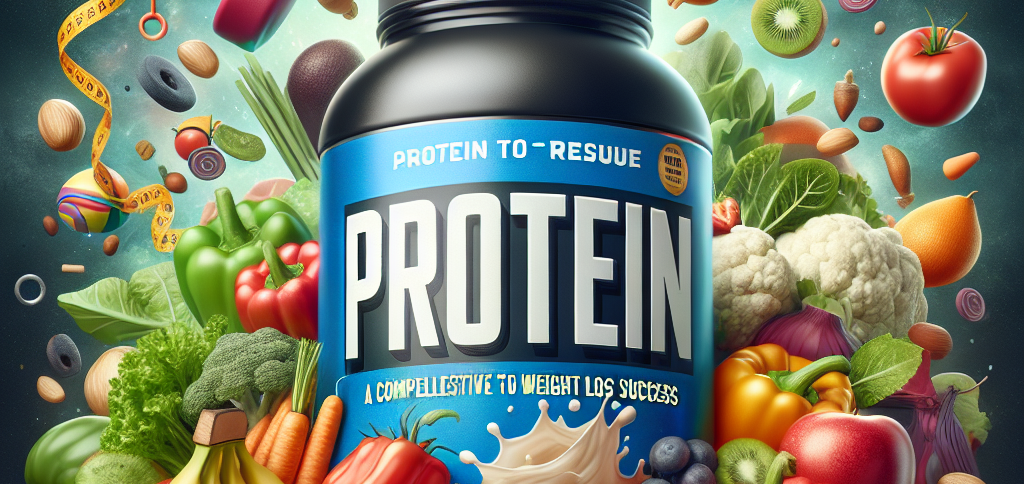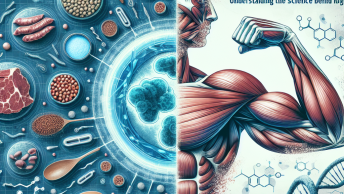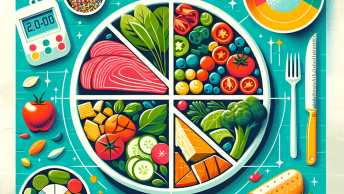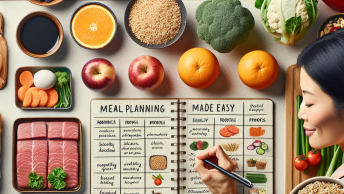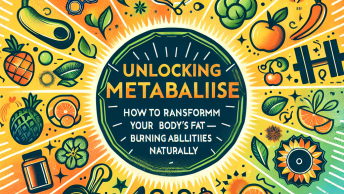In the quest for effective fat loss strategies, a high protein diet has gained tremendous popularity. Whether you’re aiming to shed a few pounds or transform your entire physique, incorporating more protein-rich foods can dramatically enhance your results. In this article, we’ll dive into ten essential insights about high protein diets for fat loss, equipping you with the knowledge you need to succeed.
1. Understanding Protein’s Role in Weight Loss
Protein serves as one of the three macronutrients essential to human health, alongside carbohydrates and fats. When it comes to fat loss, protein is key because it helps maintain lean muscle mass while you lose fat. The more muscle you have, the higher your basal metabolic rate (BMR), meaning you’ll burn more calories at rest. Incorporating adequate protein can help preserve this muscle mass during caloric deficits.
2. Increased Satiety and Reduced Hunger
One of the most appealing aspects of a high protein diet is its ability to promote satiety. Protein takes longer to digest compared to carbohydrates and fat, making you feel fuller for longer periods. This can lead to reduced overall calorie intake, as you’re less tempted to snack or overeat between meals. If you’re looking for satisfying meal options, consider lean meats, Greek yogurt, and legumes.
3. Boosting Metabolism through Thermogenesis
Did you know that your body burns calories digesting food? This is known as the thermic effect of food (TEF). Protein has a higher TEF compared to fats and carbohydrates, meaning that consuming protein-rich foods can elevate your metabolic rate more effectively. This results in more calories burned simply by processing what you eat.
4. Exploring Protein Sources
Not all protein sources are created equal. Some excellent options for a high protein diet include:
- Lean Meats: Chicken breast, turkey, and lean cuts of beef or pork.
- Fish: Salmon, tuna, and other seafood rich in omega-3 fatty acids.
- Dairy: Greek yogurt, cottage cheese, and low-fat cheese.
- Plant-Based: Lentils, beans, chickpeas, quinoa, and nuts.
Including a variety of protein sources ensures that you’re not only meeting your protein goals but also obtaining essential nutrients that come with different foods.
5. Finding Your Protein Needs
The ideal protein intake for fat loss can depend on various factors, including age, sex, weight, and activity level. A general recommendation for those aiming to lose fat is 1.2 to 2.2 grams of protein per kilogram of body weight. Adjusting your protein intake to align with your fitness goals can yield better results, allowing for both muscle preservation and fat loss.
6. Practical Tips for Incorporating Protein
Adopting a high protein diet doesn’t have to be overwhelming. Here are some practical tips to get started:
- Make Protein a Priority: Ensure that your primary meals include a source of protein. Start your day with eggs or a protein shake.
- Snack Wisely: Instead of reaching for chips or sweets, opt for protein-rich snacks like nuts, cheese, or a protein bar.
- Prep Meals Ahead: Preparing meals in advance can help you stick to your protein goals. Cook larger portions of protein-rich meals and portion them out for the week.
7. Protein Supplements – A Helpful Ally?
If you’re struggling to meet your protein needs through food alone, protein supplements can be a convenient solution. Options such as whey protein, casein, or plant-based protein powders can easily be added to smoothies or baked goods. However, it’s essential to choose high-quality products without unnecessary fillers. You can encounter various supplement options available online. For detailed and effective products, Click Here to learn more.
8. High Protein Diet and Exercise
While a high protein diet is beneficial for fat loss, combining it with a regular exercise regimen amplifies results. Strength training, in particular, can help maximize muscle gain while you’re in a caloric deficit. When you provide your body with sufficient protein, you’re supporting recovery and rebuilding muscle tissues damaged during workouts. Aim for a balanced routine that includes cardio and strength training for the best outcomes.
9. Monitoring Progress and Adjustments
To ensure that your high protein diet is working effectively for fat loss, it’s crucial to monitor your progress. Track your body measurements, weight, and how you feel overall. If you find that you’re not seeing results, consider making adjustments to your calorie intake, protein levels, or exercise routine. Each body is unique, and finding what works best for you may take some time and experimentation.
10. Long-Term Sustainability of a High Protein Diet
While high protein diets can be effective for fat loss, it’s essential to consider sustainability. Many diets fail when they’re too restrictive or challenging to maintain over the long term. Aim for a balanced diet that keeps you satisfied and allows you to enjoy various foods. Tolerance to different eating patterns varies among individuals, so finding a balance that works for you is crucial for lasting fat loss.
Conclusion
Embarking on a high protein diet can significantly enhance your fat loss journey. By understanding its role in weight management, recognizing effective sources, and incorporating practical tips, you position yourself for success. Remember, the key to a successful diet lies in balance and finding what works best for your body. With the right dedication and knowledge, you can achieve your fat loss goals while enjoying delicious, protein-rich meals!
If you’re interested in discovering various strategies, meal plans, and supplements that support high protein dietary needs, Click Here to learn more. Let’s make this journey exciting and fruitful!
